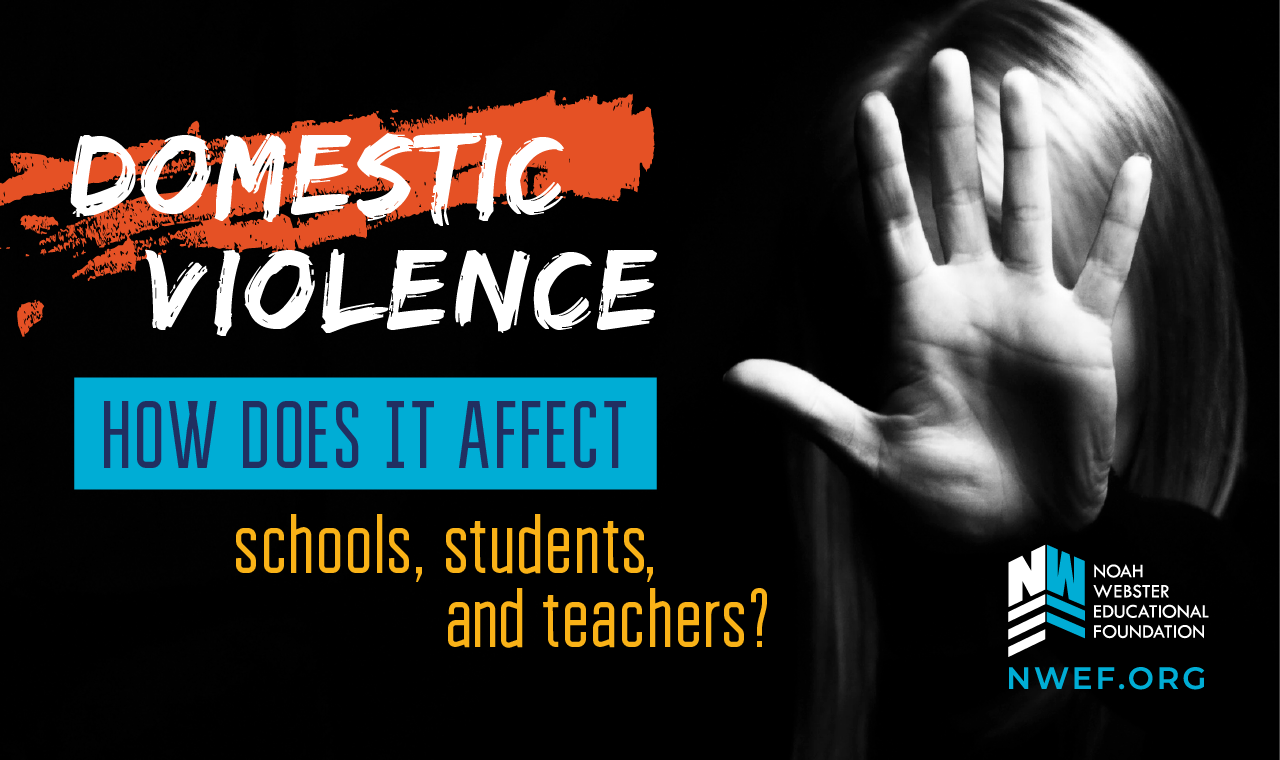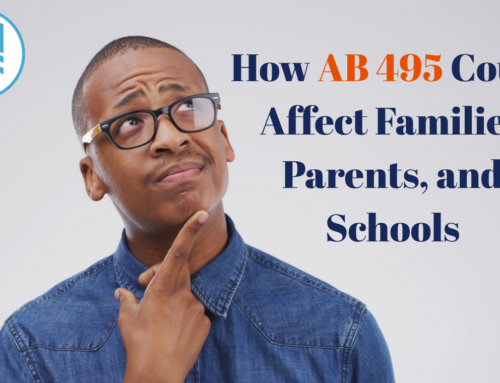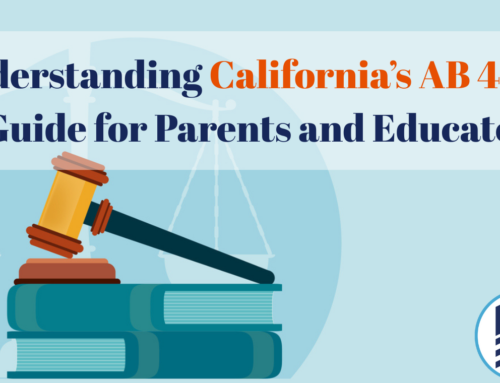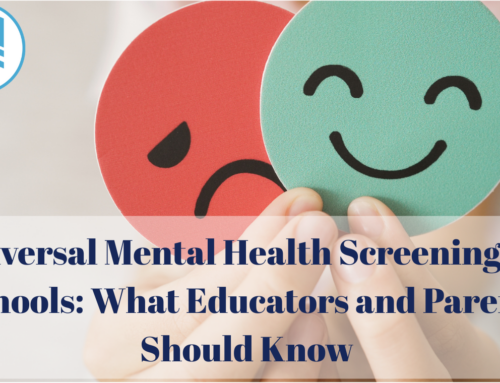
Domestic Violence: How Does It Affect Schools, Students, and Teachers?
Did you know that it’s estimated that 1 in 15 children are exposed to domestic violence every year?
According to Futures Without Violence, “15.5 million U.S. children live in families in which partner violence occurred at least once in the past year.” Domestic violence shelters house many children who are in serious danger of witnessing abuse or being abused themselves. Teen dating abuse is prevalent, with “nearly 1.5 million high school students nationwide experienc[ing] physical abuse from a dating partner in a single year,” says Love Is Respect.
The statistics are staggering and concerning. If so many children and teens are exposed to domestic violence, how many walk into school every day carrying that burden on their shoulders? How many of their teachers deal with the same problems in their own homes? After all, the CDC estimates that 1 in 4 women and 1 in 7 men experience partner violence once in their lifetime.
What if domestic violence is creating underlying issues within your classroom or your child’s school? What should parents, grandparents, and teachers do?
What We’re Up Against
Domestic violence takes many forms and each affects kids profoundly.
- Intimate partner violence damages many homes across the U.S. Intimate partner violence can be between a child’s mother and father, although commonly, children experience partner violence if their parents are divorced or if they have a chronically unstable home life. For example, if their mother has remarried or their father has a girlfriend. And if a child’s parents plan to divorce, the risk of domestic violence occuring during the separation process is much higher.
- Witnessing intimate partner violence is as harmful to children as direct abuse to themselves, says USA Today. Depression, anxiety, isolation, and guilt are some of the common results of this kind of abuse. Some children even become violent to their peers, since they see it at home and know no other way of coping with emotions, and may repeat abusive behavior in their own relationships as adults.
- Children may also be abused at home, especially if they live with intimate partner violence already. Many different types of child abuse exist; this category of domestic violence can include physical, sexual, verbal, emotional, or all of the above. Child abuse can have devastating results, including death, suicide, brain damage, and physical issues such as stomachaches or headaches, breakdowns, behavioral problems, and much more.
- Children can also be exposed to elder abuse, especially if their family includes a grandparent or another older relative. Again, just witnessing abuse perpetrated on a family member can cause long-term mental challenges such as PTSD or anxiety.
- Teen dating violence, though not addressed as often, may be equally harmful. Dating violence especially impacts schools, because it often happens right on campus. If a teen experiences abuse from a girlfriend or boyfriend, they may have trouble knowing what to do about it if they’ve never been exposed to partner violence before, and particularly because they are as yet emotionally immature. Like all other abuse, teen dating violence can lead to many psychological problems, substance abuse, and even suicide. Plus, one study reveals that teen dating violence “results in poor health and mental health, lower academic achievement, truancy and drop out.”
The Effects Of Domestic Violence In Schools
Consistent violence and abuse impacts every corner of a child’s life. It affects mental well-being, prevents them from having a healthy emotional balance, and manifests itself, sometimes, in physical discomfort.
Children’s stability and mental health play a big part in his or her school life and ability to learn. A compromised school can affect a student’s friends, teachers, and class.
It’s more likely for young children who experience domestic violence to have trouble in school, such as getting bad grades and failing to develop their social abilities. They may become a bully or be bullied. They may “act out” in class, have trouble focusing, and fail to create close friendships. As they become teens, they risk developing substance addictions, which present a whole new slew of problems. They may become acutely depressed, miss classes, and even drop out of school all together. Science Daily says one out of five teens drop out of high school, and they’re more likely to do so if they’re abused.
Children and teens exposed to domestic violence don’t feel safe and can become disruptive to their classes and schools. Children in broken households also tend to move often to live with different relatives or caregivers, which can greatly impact their success in school. Teachers who deal with disruptive, aggressive, or depressed children cannot give their full focus to all the students in their class. Teachers and students alike will have trouble engaging with learning.
Schools may be held responsible for a negative situation (such as low grades, disciplinary issues, or truancy) that links back to domestic violence. This can put a lot of pressure on schools and teachers, not to mention the students themselves.
Domestic Violence Laws That Impact Schools
Let’s talk a little about domestic violence laws and policies that schools may face at one time or another.
Dating abuse is such a prevalent problem in our schools today that states have passed legislation to address it. Many of these laws require schools to incorporate dating violence education into their curriculum. A few require that schools provide for the educational and other related needs of dating violence victims.
Children sometimes find themselves without a home due to domestic violence situations. Homeless children are protected under The McKinney-Vento Act. This law “ensures children and youth who have lost their housing can attend school. The law covers things like the right to transportation and the freedom to attend school without harassment or being separated in any way from their classmates.
Similarly, The Federal Education Rights and Privacy Act allows schools to release private information to various authorities or caregivers without a parent’s permission in the event of a domestic violence situation.
Schools may also be impacted by restraining orders, particularly when it comes to teen dating violence. If a teen gets a restraining order on his or her dating partner who attends the same school, the school may be required to make accommodations for that, such as removing the abuser from certain classrooms or programs. They could even be required to transfer the abuser to another school.
What We Can Do To Help
Many schools are already knee-deep in raising awareness among students and teachers about domestic violence. And we know that domestic violence is a devastating and all-too-common theme today in America.
But stopping domestic violence doesn’t start at school; it starts at home. Strong families make strong students.
Schools and teachers still have a great deal of influence over children, however. Teachers and staff should be always on guard. Teen dating violence often happens on campus, and a school’s failure to report such behavior, if it’s known, can lead to consequences.
Sometimes abusive parents have restraining orders to keep them from harming their children. It’s a good thing for teachers to know about this and plan for it. It’s also important for teachers to understand a student’s home life. Does he have a blended family? If a child’s parent is living with another adult unrelated to the child, the risk of domestic violence increases dramatically. Find out if domestic violence insidents have occured in one (or both) of the student’s homes. Who will you contact if domestic violence comes to light?
Since teachers spend long hours with their students it’s important for them to look out for signs of trauma and seek ways to help, including contacting their parent or guardian.
Teachers, you may want to consider keeping a domestic violence hotline stored on your phone for quick access for yourself or your students. If you’ve experienced domestic violence previously in your own life, you’re in a unique position to help and offer understanding to your students who deal with the same.
And remember, every teacher has the power to create a safe, healthy culture in the classroom, which promotes good conduct and healthy morals.
Whether you’re an educator, parent, or guardian, if you’re a safe adult in a child’s life, talk to them about these issues. It’s the best way to protect them from domestic violence, as well as teaching them to think critically and use wisdom.
Domestic violence is destructive both at home and in school. Let’s be sure we know what we’re up against and fight hard for our students’ safety!





It to me is boring.